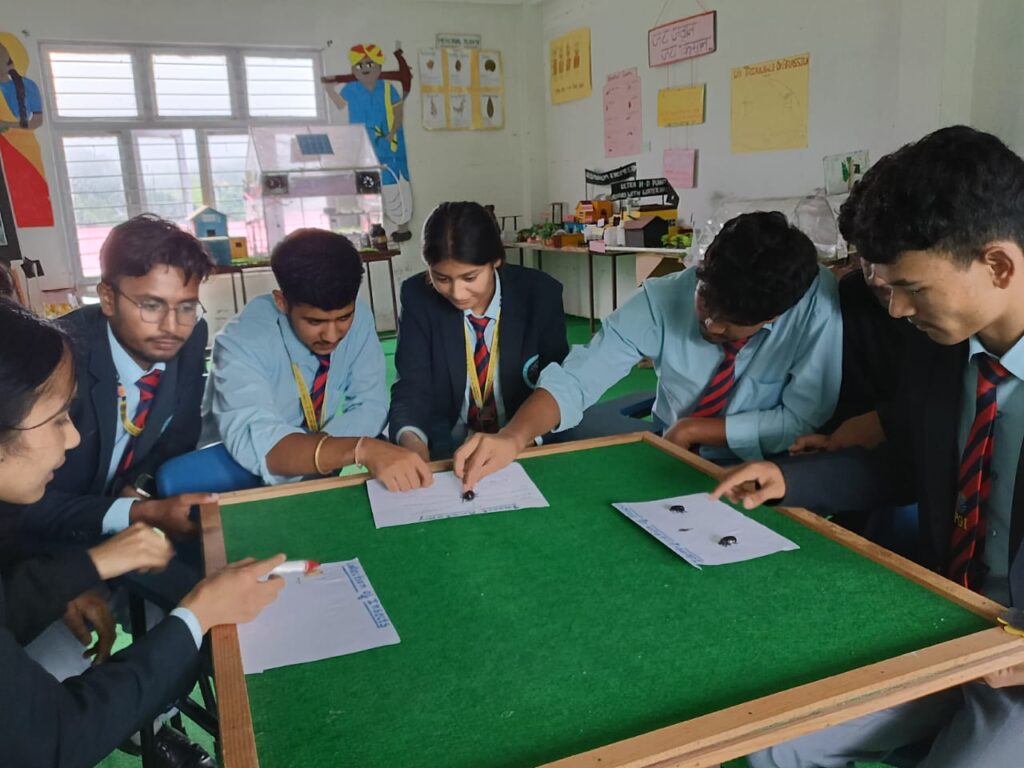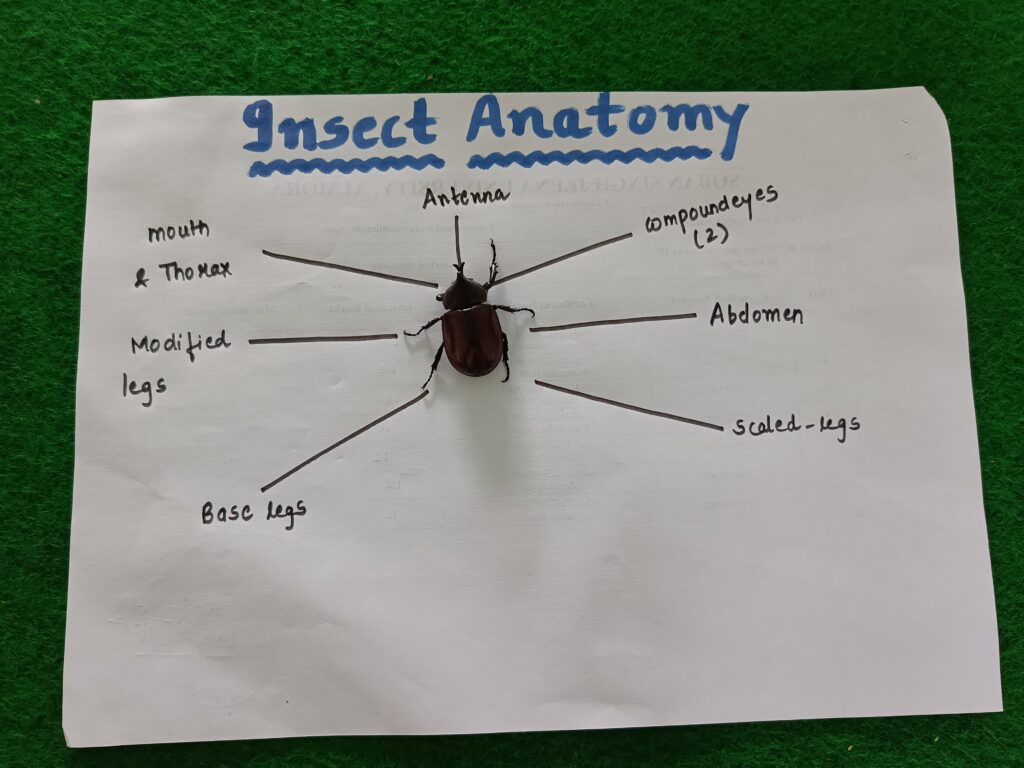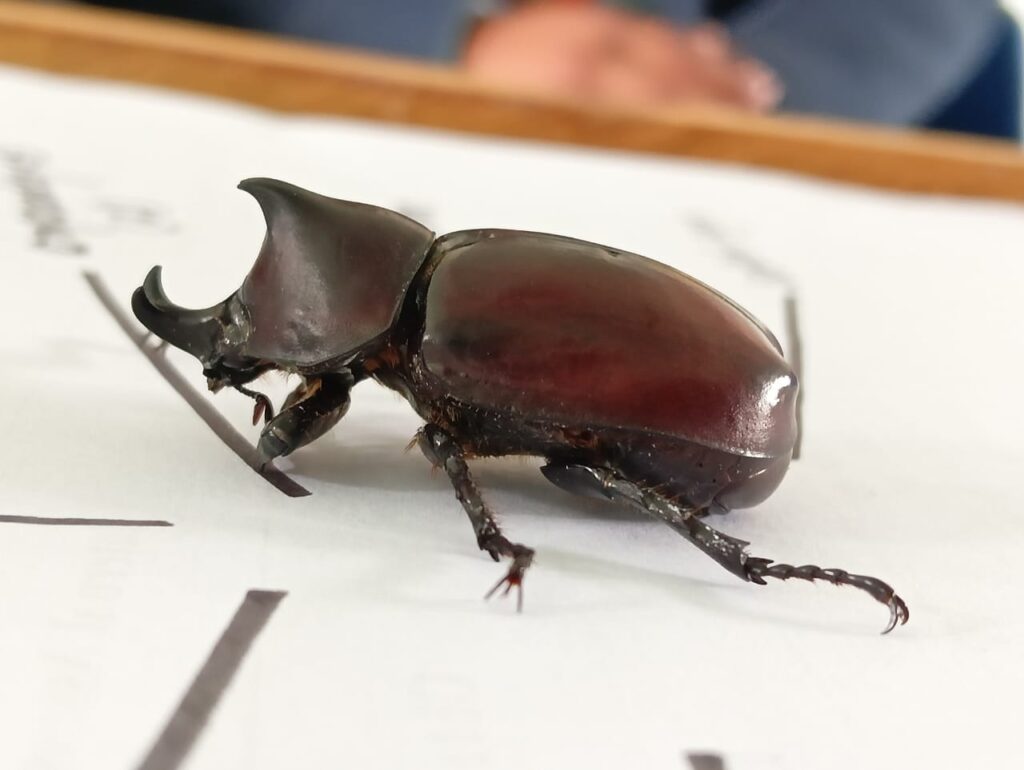Identification of Insects and Ex-Situ Preservation Using Ethyl Alcohol – Practical Activity
B.Sc. Agriculture students of Pithoragarh Institute of Technology & Management (PITM), operating under PGI College, Pithoragarh, from the 3rd and 5th semesters, recently participated in an in-depth practical training session on identifying insects and preserving them using ethyl alcohol. This initiative was an essential part of their curriculum, designed to strengthen their applied knowledge in agricultural sciences and bridge the gap between theoretical study and real-world practice.
Overview of the Activity
The workshop was organized by the Department of Agriculture at PITM as a part of the ongoing skill-development modules for undergraduate agriculture students. The core purpose of the activity was to expose learners to the diversity of insects found in agricultural ecosystems and train them in the scientific techniques required to preserve insect specimens for research and educational purposes.
Students had the opportunity to work both in the field and inside the laboratory, giving them a comprehensive understanding of each step in the process. In the field, they focused on careful collection and classification, while in the laboratory, they practiced accurate preservation and cataloguing of specimens.
Objectives of the Practical Session
This session was designed with several key educational goals:
- Enhance Identification Skills – Train students in recognizing and classifying common agricultural insects through physical characteristics such as body shape, wings, and antennae.
- Introduce Ex-Situ Conservation Practices – Familiarize students with the concept of preserving species outside their natural environment for research, education, and biodiversity conservation.
- Teach Scientific Preservation Techniques – Provide step-by-step guidance on preserving insects using ethyl alcohol as a safe and effective storage medium.
- Encourage Scientific Documentation – Promote accurate labeling, data recording, and cataloguing of preserved specimens for future academic use.
Materials and Equipment Used
The activity made use of the following resources:
- Insect Specimens – Various species including bugs, beetles, and moths collected from local fields and gardens.
- Ethyl Alcohol (70–80%) – Used to prevent decay and maintain specimen structure over long periods.
- Transparent Preservation Jars – Glass or high-quality plastic containers for safe storage.
- Observation Tools – Hand lenses and magnifying glasses for detailed examination of insect features.
- Labeling Materials – Tags, markers, and datasheets for proper specimen identification.
Step-by-Step Methodology
- Specimen Collection – Students explored nearby agricultural zones, carefully collecting insects without damaging their bodies.
- Observation and Classification – Insects were studied under magnification to observe distinctive features such as wing patterns, body segmentation, and color variations.
- Preservation Process – Each specimen was immersed in ethyl alcohol, which acts as a preservative by halting decomposition and maintaining structural integrity.
- Labeling and Cataloguing – Specimens were labeled with their common and scientific names, collection location, and date. They were then stored in an organized specimen library for future reference.
Insects Identified During the Activity
Students successfully identified and preserved:
- Bug (Order Hemiptera) – Recognized for its piercing-sucking mouthparts.
- Beetle (Order Coleoptera) – Distinguished by its hardened forewings called elytra.
- Moth (Order Lepidoptera) – Known for its scaled wings and nocturnal behavior.
Importance of Ex-Situ Preservation in Agriculture
Ex-situ preservation, or maintaining species outside their natural habitat, is a critical approach in biodiversity conservation. In agricultural science, this method plays a vital role in:
- Safeguarding Rare Species – Protecting species at risk of extinction due to environmental changes or habitat loss.
- Maintaining Genetic Diversity – Ensuring the availability of diverse species for research, breeding programs, and pest management studies.
- Supporting Education and Research – Providing preserved specimens for classroom teaching, research projects, and public awareness campaigns.
- Monitoring Ecosystem Changes – Using preserved samples to track changes in species diversity over time.
Skills and Knowledge Gained by Students
By the end of this practical exercise, students had achieved several learning milestones:
- Improved Insect Identification Skills – They learned how to identify different species based on anatomical features.
- Practical Preservation Knowledge – Gained hands-on experience in using ethyl alcohol as a preservation medium.
- Scientific Documentation Practices – Understood how accurate labeling and cataloguing support long-term research.
- Biodiversity Awareness – Developed a deeper appreciation for the role of insects in maintaining healthy agricultural ecosystems.
- Application in Real-Life Agriculture – Recognized how knowledge of insect diversity can aid in pest control and sustainable farming practices.
Student Reflections and Feedback
Many students expressed that this session was one of the most engaging parts of their agricultural training so far. It allowed them to directly connect their classroom learning with fieldwork and laboratory procedures. The opportunity to handle real specimens also increased their confidence in working with entomological tools and techniques.
The B.Sc. Agriculture students of Pithoragarh Institute of Technology & Management (PITM), under PGI College, Pithoragarh, demonstrated exceptional enthusiasm and focus throughout this practical session. The combination of field exploration, laboratory preservation, and scientific documentation provided them with a holistic learning experience.
Such activities not only equip students with technical expertise in entomology but also instill a strong sense of responsibility towards biodiversity conservation. As future agricultural professionals, their ability to identify, preserve, and study insects will play a vital role in promoting sustainable agricultural practices and protecting ecological balance in the region.
Admissions Open 2025-26 | PGI Pithoragarh
Join one of Uttarakhand’s leading institutions for career-focused education in Nursing, Paramedical, Management, IT, Agriculture & more.
– Industry-relevant courses
-In-house placements via Cyborg IT Services Pvt. Ltd.
– Experienced faculty | Modern labs | Affordable fees
✅ Limited Seats – Apply Now!
🌐 www.pgiedu.in | 📞 +91-9084575112 | 7078456607
#MakingADifferenceLocally #BScAgriculture #AgricultureStudent #PGICCollegePithoragarh #Champawat #TeaProduction #FieldWork #AgricultureBusiness #RealWorldLearning #EducationReview #CareerGoals #PGIPithoragarh #PracticalLearning #AgricultureEducation #StudentReview #AgricultureStudents #AgricultureCourse #HandsOnLearning #ProblemSolving #RuralDevelopment #UttarakhandAgriculture #PGICollegePithoragarh #Hydroponics #HighTechHorticulture #Uttarakhand #India #Education #Inspiration #Agriculture #StudentLife #Empowerment #PithoragarhCollege #FutureOfficer #SpiritualJourney #Foodie #BScAgricultureCourse #CareerInAgriculture #PGICCollege #Pithoragarh #SustainableFarming #StudentTestimonial #AgricultureProgram #AgricultureCollege #AgricultureCareers #CollegeReview #Bageshwar #CollegeLife



















































